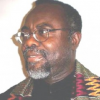
I have not studiously followed the Ivorian crisis and so, really, I cannot pretend to fully appreciate all the finer details that seem to have contributed towards bringing practical politics to a virtual standstill in our sister country. Significantly, however, it bears pointing out that those who have been loudest in calling for the incumbent Ivorian leader to stand down, as it were, are not known to have substantively acted to induce the salutary ousting of Gambia’s President Jammeh, a primitive dictator of the most horrible kind in the West African sub-region. Personally, therefore, I believe that such calls are far more motivated by the remarkable economic heft of la Côte d’Ivoire than any ingrained and/or fundamental belief in the immutable righteousness of democratic culture.
This is partly why I find something troubling about journalists of remarkable renown weighing in on this decidedly sticky subject on the sole basis of what the so-called International Community thinks about one or the other key player in the raging crisis. For at the end of the day, what ought to be squarely borne in mind is the fact that both Mr. Laurent Gbagbo, the current Ivorian president, and his apparently inveterate political opponent, Mr. Alassane Ouattara, live in the Ivory Coast, whereas most of us Anglophone political pundits, even those of us who have been keenly following developments therein, do not reside in la Cote d’Ivoire.
It thus amounts to insufferable arrogance for many a non-Ivorian to presume to know exactly what political arrangement is best for the very people nearly half of whom appear to be roundly rejecting the same. I have also, for instance, yet to be intelligently informed as to how it came about that elections were allowed to proceed, supposedly under the legitimate and sound monitoring of the United Nations and its most powerful backers when, clearly, going into such elections the Ivory Coast could not be practically said to have been geo-politically unified.
In other words, the Ivory Coast went into its most recent elections as two decidedly different enclaves, namely, a North and a South, with a United Nations peacekeeping force being the only credible buffer that laudably prevented the two sides from, literally, tearing at each other’s throats. And while there, of course, appears to have been some form of power-sharing transitional arrangements, on the national front, beyond the parochial interests of the major players, there seems to have been very little done towards the creation of organic coherence. And this is what clearly appears to have precipitated the current impasse in which the evidently losing incumbent has obdurately decided to cling onto a questionable mandate.
What makes the current situation defy facile and simplistic analysis is the fact that even in the most advanced global democracies, such as the United States, merely losing the popular votes in an election has not necessarily guaranteed that the loser would politely and peacefully walk away for the winner to legitimately constitute the next government.
And so, really, it could not be that those Washington-resident leaders who have been vehemently clamouring for Mr. Gbagbo to either ease himself or be eased out of power, could also not have been jarringly aware of the stark moral contradiction entailed in such call. We learn from the Ivorian crisis, for example, that the conflict is one that is actually between the country’s Electoral Commission, the institution charged with the conduct of the most recent elections, and the all-powerful Constitutional Council which, for want of coordinate exactitude, may be likened to the Electoral College here in the United States.
If the foregoing analogy has validity, then it could simply not be that President Gbagbo can also be aptly described as either a psychological basket-case merely spoiling for avoidable tragedy, as one writer recently cast it on one Ghanaian media website, or even that he is merely acting like the stereotypical and implicitly primitive postcolonial African strongman whose only legitimate idiom of expression and appreciation is one of intensely focused and inexorable application of counter-force.
In sum, if even here in the United States, the at once most advanced and powerful of democracies, “Constitutional Councils” like the United States Supreme Court can decree that a presidential-election loser is the one mandated by the legendary Founding Fathers to constitute the august federal government, then what renders the authority of the Ivorian Constitutional Council any less legitimate?
In his radio call for the legitimacy of President Gbagbo to be summarily proscribed, former BBC-News reporter Mr. Kwaku Sakyi-Addo facilely predicated such call on the dubious fact of the finance ministers of the International Bank of West Africa having supposedly endorsed the electoral victory of Mr. Ouattara, a former Ivorian director and representative of the World Bank (See “Revoke Credentials of Gbagbo’s Envoys – Sakyi-Addo” Modernghana.com 12/31/10). I hope Mr. Sakyi-Addo gets the drift of what the latter sentence implies.
Even more poignantly, it cannot be the case that, somehow, Mr. Sakyi-Addo is too morally addled to appreciate the glaring reality of the fact that, indeed, the finance ministers of the International Bank of West Africa have absolutely no right to determine who governs the Ivory Coast but the citizens and electors of that country itself. And so ought to be the decision of whether Mr. Gbagbo should be allowed to continue to draw on Ivorian funds held in trust by the IBWA.
By Kwame Okoampa-Ahoofe, Jr., Ph.D.
Kwame Okoampa-Ahoofe, Jr., Ph.D., is Associate Professor of English, Journalism and Creative Writing at Nassau Community College of the State University of New York, Garden City. He is a Governing Board Member of the Accra-based Danquah Institute (DI) and the author of a forthcoming volume of poetry titled “The Obama Serenades.”
E-mail: okoampaahoofe@optimum.net
The opinions expressed here are the author`s and do not necessarily reflect the views or have the endorsement of the Editorial Board of AfricaNewsAnalysis
